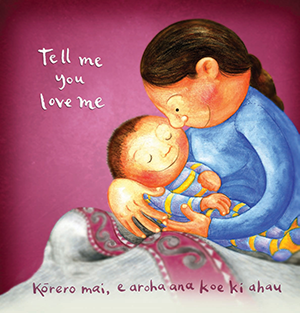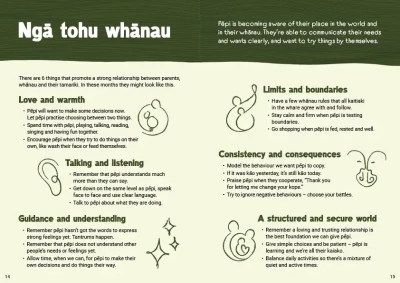
Feeling loved
The foundation of good parenting is a loving and trusting relationship with your child, and it makes dealing with behaviours in positive ways easier and more effective.
When a child has many positive experiences, they build strong, positive brain pathways that will help them all through their life with learning and relationships.
Loving relationships
In the Whakatipu Te Pihinga 3 (page 15), under ‘A structured and secure world’, it says:
‘Remember a loving and trusting relationship is the best foundation we can give pēpi.'
Ask whānau:
- How does being loved give a child a good foundation?
- What do they learn from it?
Offer a suggestion if needed. Maybe: ‘I’m loved, so I’m loveable, so I’m worth loving, and so I’m an okay person’.
- How can a child know they can trust their family to care for them, and give them a good foundation?
- What happens if they can’t trust their family to care for them?
- Why are loving relationships so important?
Try an activity
Lullabies
Singing soothes babies, supports their development, and strengthens the connection between parent and baby.
Love as a foundation
When parents provide warm, loving relationships, other aspects of parenting are likely to go better. It’s the foundation for everything else that parents do – without a secure relationship, strategies like limit-setting won’t work nearly as well.
- How do you think you can help your child understand they’re loved, and that they can trust people?
- Around this time, some challenging or annoying behaviours may start to happen. Have you been noticing your child:
- wanting to do things for themselves?
- having a tantrum?
- grizzling and whining?
- What have you been noticing?
- How have you been dealing with that?
- How does your child react when you do that?
- What do you think they might be feeling or thinking?
- If you were the child, how do you think you’d feel?
- Do you think your responses affect their feelings of trust and being loved? How?
Making a plan
If their child’s behaviours are causing parents to become angry or frustrated, help the whānau develop a good strategy that emphasises positive ways to deal with the behaviours.
Read the article on Positive experiences for more help with this session.












